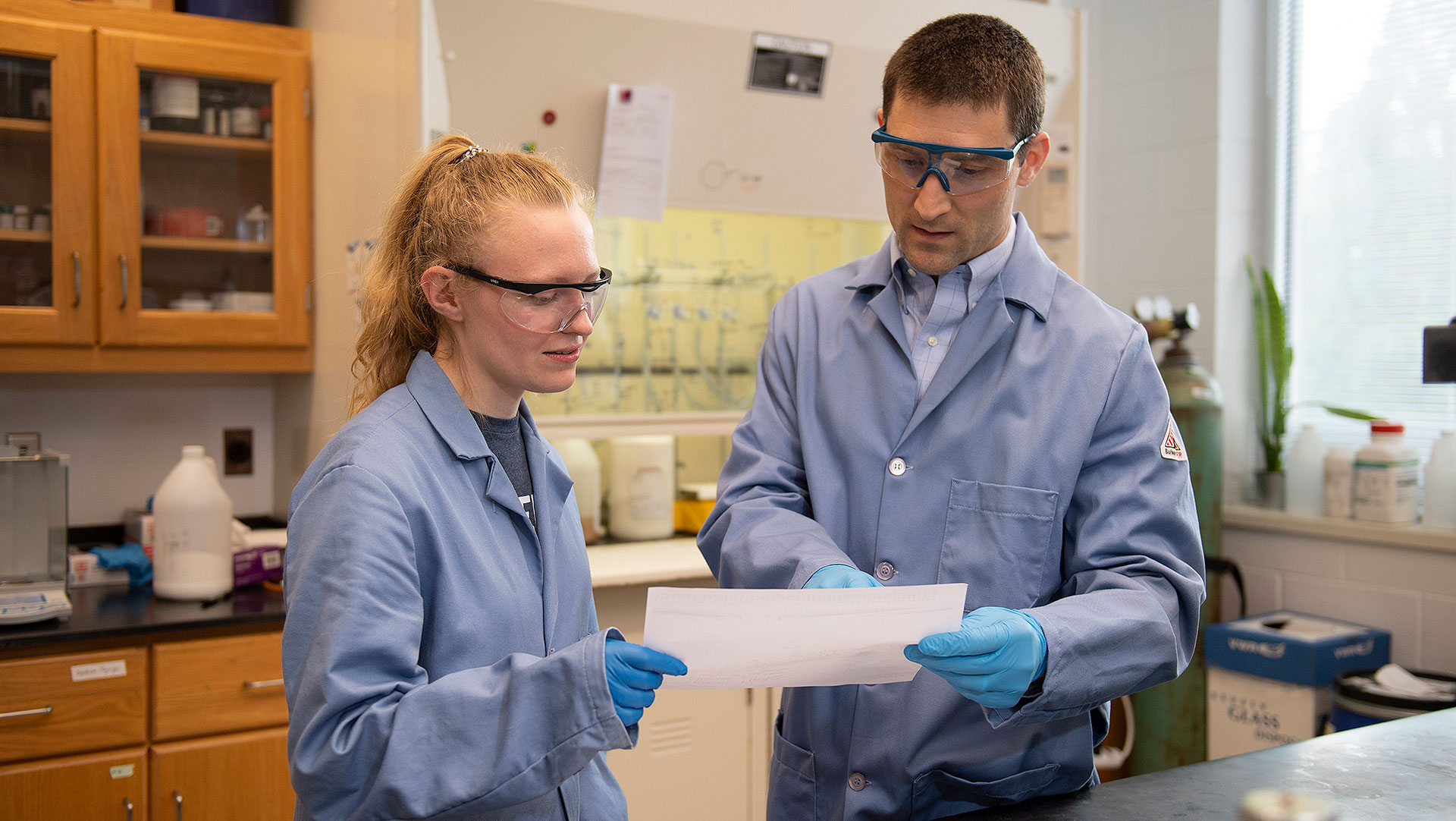Sydney Nelson ’22, a medical student in the Vanderbilt University Medical Scientist Training Program, has made the most of professional development beyond Berry. Just a few weeks after graduation, she began working as an assistant in a prestigious research laboratory at Washington University in St. Louis. There she helped investigate aptamers, nucleic acid strands with the potential to become molecular biosensors useful for fighting disease and protecting the environment. The position was a key point in Sydney’s career journey, which includes a future role characterizing the molecular origins of disease subtypes. She credits Berry College with laying the path for her success.
Sydney took her crucial first steps as a high school senior, when Mark Turlington, associate professor of chemistry and biochemistry at Berry, recruited her to join a program that pairs research-oriented freshmen with faculty mentors. “He graciously allowed me to be involved in his research lab during my first semester, and he continually sought out ways for me to advance myself as a researcher,” Sydney says.
Turlington also guided her as she learned to present findings at professional meetings and write grants to fund her work. “It was amazing to have a mentor who was as ambitious as I was from the very beginning,” she says.
Sydney chose a biochemistry major to better understand the atomic interactions that power the human body — and the ways in which they change with disease. She later added a biology major to learn about the broader impact of biochemistry on organisms and “to determine creative, interdisciplinary approaches to medical research,” she says.
On that front, Sydney made important strides in Turlington’s lab, where she explored the development of molecular compounds that can degrade cancer-causing proteins. “What makes her research unique is that these proteins cannot be effectively targeted by current anti-cancer drugs,” Turlington explains. “The concepts could also extend to diseases beyond cancer.”
The hard work paid off when she received a 2022 Goldwater Scholarship, the nation’s most prestigious undergraduate award for students in science, mathematics and engineering. The honor, which was awarded to only 417 students in the United States that year, recognizes and supports exceptional research. Sydney is Berry’s fourth Goldwater Scholar within a five-year span.
In addition, Sydney spent two summers as a visiting research scholar in a chemistry lab at Georgia State University, where she learned to culture and engineer cell lines in order to test the compounds she developed at Berry. While presenting a poster on her discoveries from Berry and Georgia State at an American Chemical Society meeting, Sydney met Jennifer Heemstra, the Washington University at St. Louis chemistry professor who later hired her to study aptamers.
The plan behind her joint M.D./Ph.D. degree? To become “a medical researcher who can tell patients for whom current treatments have not worked that science has not forgotten them.” Sydney says. “It will be their stories that guide my research that looks beyond symptoms to understand and address underlying causes of their diseases.”



